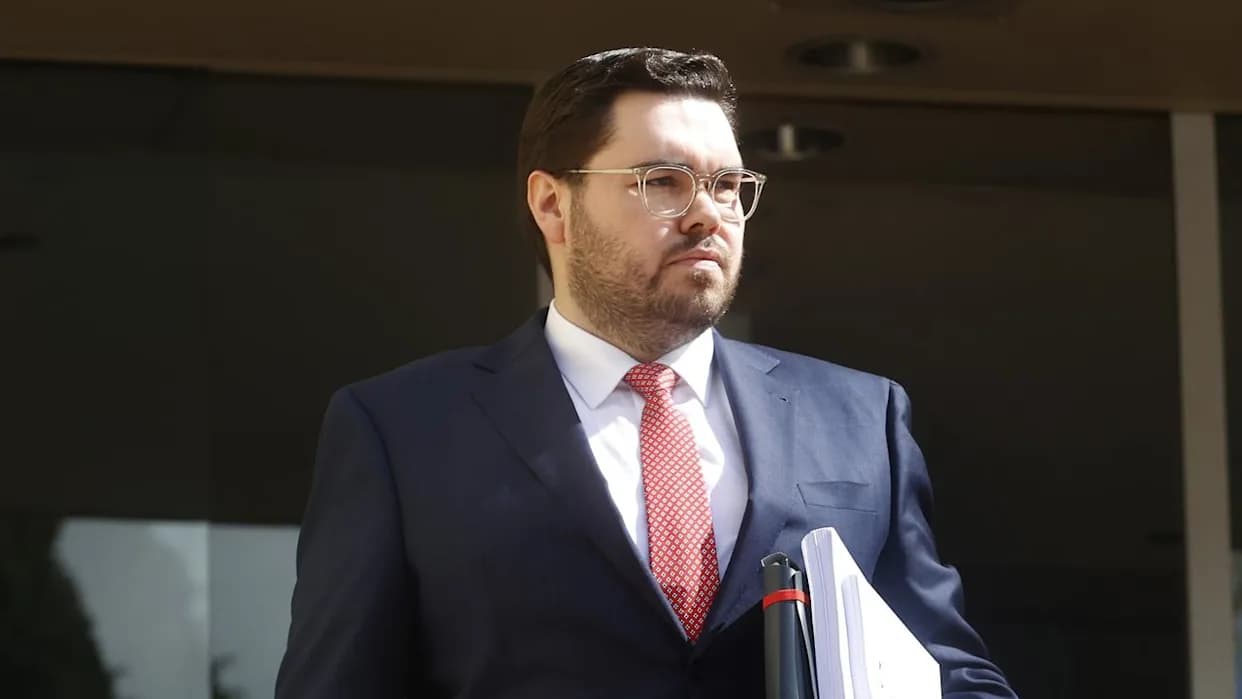We're loading the full news article for you. This includes the article content, images, author information, and related articles.
A high-profile case in Australia involving a former political staffer, a corruption watchdog, and secret submarine documents offers a global perspective on the challenges of accountability, providing a comparative lens for Kenya's own anti-graft efforts.

GLOBAL - The Australian government has formally denied a request for taxpayer-funded legal assistance from Bruce Lehrmann, a former political staffer under investigation for allegedly mishandling classified government documents. The decision, confirmed on Tuesday, 4 November 2025, escalates a legal battle that places the powers of Australia's new anti-corruption body under intense scrutiny and raises universal questions about state responsibility in prosecuting sensitive cases.
The rejection was issued on 22 October by the Special Minister of State, Don Farrell, and revealed by Mr. Lehrmann during a federal court hearing. Mr. Lehrmann is now seeking a judicial review of the minister's decision. He had initiated legal action against both Minister Farrell and the commissioner of the National Anti-Corruption Commission (NACC), Paul Brereton, after his home was raided by NACC officials in June 2024.
The investigation centres on allegations that Mr. Lehrmann, 30, misappropriated secret documents in 2019 related to a multi-billion dollar French submarine contract. He has consistently denied these allegations, describing them as “frivolous, James Bond-like allegations”.
This case represents a significant test for the NACC, an independent federal agency established on 1 July 2023, to investigate serious or systemic corruption in the public sector. The commission was formed after years of public demand and a notable slide in Australia's position on global corruption indices, intended to restore public trust in government institutions. With a broad mandate to investigate ministers, public servants, and their staff, retrospectively if needed, the NACC holds significant power, including the ability to conduct raids, compel evidence, and hold hearings.
The NACC's investigation into Mr. Lehrmann, a former staffer for the previous Liberal party government, demonstrates its authority to probe matters of national security and the conduct of those once in the corridors of power. This mirrors the mandate of Kenya's Ethics and Anti-Corruption Commission (EACC), which is also tasked with investigating public officials. However, the Australian NACC's structure as a single, powerful federal body provides a different model to Kenya's framework, offering insights into how different jurisdictions empower their anti-graft agencies.
At the heart of the current court case is the question of who should bear the financial burden when the state investigates an individual, particularly in a case with national security implications. Mr. Lehrmann has told the court he is in a “financially dire situation” and is representing himself due to a lack of funds. His lawsuit argues that the government unreasonably delayed its decision on funding, thereby denying him procedural fairness.
The Australian government provides legal financial assistance in various circumstances, including for matters involving national security or where a case could settle an important question of law. The Attorney-General can authorize funding for individuals involved in NACC hearings. However, such funding is not automatic and is subject to strict eligibility criteria, often excluding those who can afford their own costs without “serious financial difficulty”. Minister Farrell's rejection of Mr. Lehrmann's application suggests the government believes his case does not meet the required threshold, a decision Mr. Lehrmann's legal challenge will now test in court.
This standoff highlights a critical aspect of the rule of law: ensuring an individual's right to a fair process and adequate defence, balanced against the responsible use of public funds. The outcome could set a precedent for how Australia handles legal aid for individuals caught in the crosshairs of its powerful new anti-corruption commission.
While the events are unfolding thousands of kilometres away, the principles at stake resonate strongly in Kenya and across East Africa. The establishment and operation of independent anti-corruption bodies are central to good governance. The Lehrmann case serves as a real-world example of such a body in action, demonstrating the legal and political complexities that arise when investigations target politically-connected individuals.
For Kenyans, who closely follow the EACC's efforts to combat corruption, the Australian case underscores the importance of robust legal frameworks that govern not only the powers of investigators but also the rights of the accused. It brings to the forefront the global conversation on accountability, transparency, and the immense challenge of ensuring that justice is not only done but is seen to be done, regardless of an individual's past or present influence.
As Mr. Lehrmann continues his legal fight without public funding for now, observers in Kenya and worldwide will be watching to see how one of the world's established democracies navigates the delicate balance between national security, anti-corruption enforcement, and individual rights. A hearing on the matter is anticipated in February of next year.
Keep the conversation in one place—threads here stay linked to the story and in the forums.
Sign in to start a discussion
Start a conversation about this story and keep it linked here.
Other hot threads
E-sports and Gaming Community in Kenya
Active 9 months ago
The Role of Technology in Modern Agriculture (AgriTech)
Active 9 months ago
Popular Recreational Activities Across Counties
Active 9 months ago
Investing in Youth Sports Development Programs
Active 9 months ago